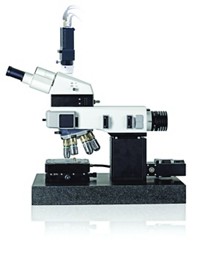Advertisement
Grab your lab coat. Let's get started
Welcome!
Welcome!
Create an account below to get 6 C&EN articles per month, receive newsletters and more - all free.
It seems this is your first time logging in online. Please enter the following information to continue.
As an ACS member you automatically get access to this site. All we need is few more details to create your reading experience.
Not you? Sign in with a different account.
Not you? Sign in with a different account.
ERROR 1
ERROR 1
ERROR 2
ERROR 2
ERROR 2
ERROR 2
ERROR 2
Password and Confirm password must match.
If you have an ACS member number, please enter it here so we can link this account to your membership. (optional)
ERROR 2
ACS values your privacy. By submitting your information, you are gaining access to C&EN and subscribing to our weekly newsletter. We use the information you provide to make your reading experience better, and we will never sell your data to third party members.
Analytical Chemistry
Günther Laukien Prize Winners Are Named
July 31, 2006
| A version of this story appeared in
Volume 84, Issue 31
Four researchers have been awarded the 2006 Günther Laukien Prize for their ground-breaking work in speeding up multidimensional nuclear magnetic resonance (NMR). The winners are Thomas Szyperski, State University of New York, Buffalo; Eriks Kupce, Varian, Surrey, England; Ray Freeman, Jesus College, Cambridge, England; and Rafael Brüschweiler, National High Magnetic Field Laboratory, Florida State University, Tallahassee.
Szyperski devised G-matrix Fourier transform (GFT) NMR for reducing the dimensionality of multidimensional NMR. By projecting one or several dimensions, the sampling-related restrictions on data recording can be circumvented and the time needed to record spectra with high dimensionality is drastically reduced. A G-matrix transformation turned out to be crucial for recovering multidimensional spectra.
Kupce and Freeman developed efficient procedures involving projection-reconstruction techniques for speeding up multidimensional NMR. A novel reconstruction algorithm based on the inverse Radon transform is an essential part of the new procedure. Another proposal by them is to use the Hadamard concept for fast multidimensional spectroscopy.
Brüschweiler invented covariance NMR spectroscopy, where the speeding up of multidimensional NMR results from the conversion of a time-domain matrix into a covariance matrix, which is submitted to a covariance analysis that identifies correlated changes of magnetizations. The technique has proven beneficial for the high-sensitivity recording of 13C-13C spectra and of multiple-quantum correlation data.
The award was established in 1999 to honor the memory of Günther Laukien, a cofounder of Bruker BioSpin. The prize carries a monetary award of $15,000 funded by Bruker BioSpin and is intended "to recognize cutting-edge experimental NMR research with a high probability of enabling beneficial new applications."



Join the conversation
Contact the reporter
Submit a Letter to the Editor for publication
Engage with us on Twitter